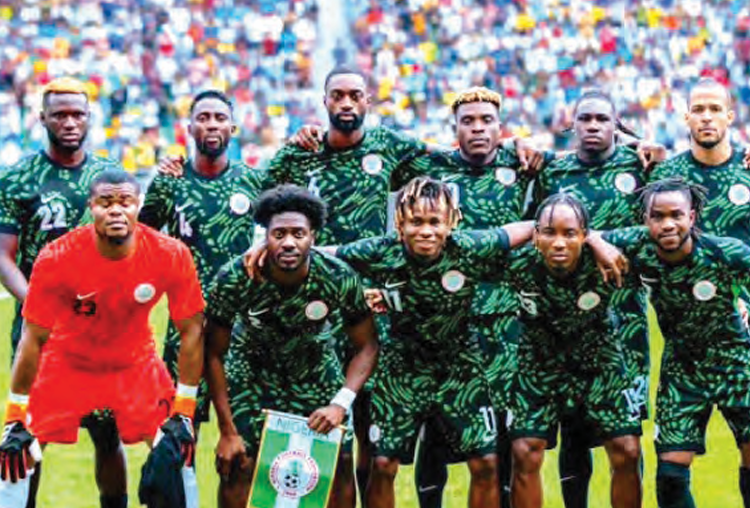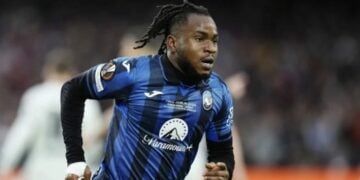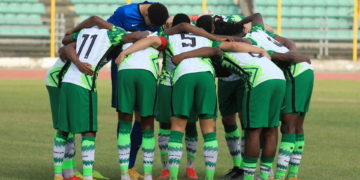As 2024 draws to a close, it’s crucial to reflect on the state of Nigerian sports, evaluating both progress and setbacks across various sub-sectors. At the beginning of the year, sports bodies set ambitious goals, outlining their commitments to development, performance, and growth. From football and athletics to other key sports, there was optimism and a clear vision for success.
In this feature, LEADERSHIP Weekend Sports takes a deep dive into these initial promises, measuring how well the sector performed against its objectives. We will analyze both the achievements and the critical areas where Nigerian sports faced challenges, offering an honest assessment of the year’s journey.
Ahead of the Paris 2024,Olympics, the then Minister of Sports Development, Senator John Owan Enoch,stated that his aspiration was for Team Nigeria to surpass the country’s best Olympic performance, achieved in 1996 at the 2024 Olympic Games in Paris.
He made the statement during a media in July 2024,at the Media Center of the Moshood Abiola National Stadium, while fielding questions from journalists.
“Just like it was with the African Games in Accra, Ghana, I will spell out from A-Z, the entitlements for our athletes. My aspiration is for the nation to surpass our previous record from our best Olympic Games performance in 1996,” said Senator Enoh.
Team Nigeria ended the 2024 Paris Olympics without winning a medal.They went to the Olympics on the back of some great performances in qualifying events,but failed to translate its continental dominance at the Olympics.
While there were standout performances from athletes like Favour Ofili in athletics and Blessing Oborududu in wrestling, the team ultimately fell short of its medal targets.
Hannah Reuben lost her Women’s Freestyle 76kg fight. She lost 5-2 to Mongolia’s Enkh-Amaryn Davaanasan in the round of 16 tie.
Favour Ofili, who was inexplicably excluded from the 100m event, made history as the first Nigerian woman to reach the 200m final since Mary Onyali achieved the feat at the Atlanta 1996 Olympics.
18-year old Samuel Ogazi became the first Nigerian man to reach the 400m final since Innocent Egbunike’s 1988 feat at the Seoul Olympics.
The Long Jump Trio of Ese Brume, Ruth Usoro, and Prestina Ochonogor also made history as the first time three Nigerians reached the final in one event.
Chukwuebuka Enekwechi finished sixth in the Shot Put event final.
Super Falcons also crashed out of the football game. They lost all their three group matches to Brazil, Spain (both 1-0) and Japan, scoring their only goal in a 3-1 defeat.
Boxer Cynthia Ogunsemilore was expelled from the Games for allegedly failing a dope test.
The quartet of Emmanuel Ojeli, Ezekiel Nathanial, Dubem Amene and Chidi Okezie, were disqualified from the men’s 4x400m relay at the Paris 2024 Olympics. The referee disqualified Team Nigeria when one of them impeded a South African athlete following a changeover.
Tobi Amusan failed to qualify for the final of the 100m low hurdles.In wrestling, Blessing Oborududu and Odunayo Adekuoroye, who were touted to win medal at the Games failed when it mattered most. While Adekuoroye did not reach the semifinal, even as Oborududu lost in the semis and equally lost the bronze medal match.
Ese Brume, who led two of her compatriots to the final of the women’s long jump final placed fifth thereby failing to win a medal.
In Table Tennis the country’s athletes did not fare better. They all crashed out of the Games at the first hurdle. Offiong Edem, Quadri Aruna, Olajide Omotayo, and Fatima Bello represented the country.
In weightlifting, it was also tale of woes. Rafiatu Lawal in the 59kg placed fifth in the final.
Against all expectations, D’Tigress beat third ranked team in the world, Australia 75- 62 in their opening game. Though they lost to the host team, France ranked seventh, 54-75, they rallied to beat fifth ranked Canada 79-70 in their group final game to qualify for the quarterfinal and become the first African team to achieve such a feat.
In Taekwondo, another Nigerian athlete Elizabeth Anyanacho didn’t go pass the round of 16 in the -67kg of the tee action.
In football,Nigeria’s hopes of reaching the 2026 FIFA World Cup are hanging by a thread.Since the acrimonious exit of Finidi George,the Nigerian Football Federation (NFF),is yet to appoint a substantive Head Coach for the Super Eagles, who are winless in their first four matches in CAF Group C, with a 2-1 loss to Benin last time out following three consecutive draws.
It is yet to be known if caretaker boss Augustine Eguavoen will oversee the remainder of the games when the qualifiers resume early next year.
Like in previous years, the Nigerian sports sector fell short in 2024, in areas of effective leadership and management.Poor leadership and management were significant factors in the disappointing performances of the athletics and football sectors.
Also the lack of adequate preparation and planning was evident in the performances of most Nigerian teams in international competitions.
Another area is the lack of investment in grassroots development.This was a common theme across most sectors. This needs to be addressed to ensure a steady supply of talented athletes.
while the Nigerian sports sector had its moments of glory in 2024, there were significant, shortcomings across most sectors.
As the sector looks to the future, it’s essential to address these challenges and work towards creating a more conducive environment for Nigerian athletes to thrive.











